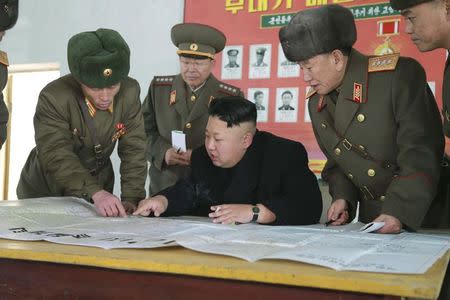N.Korea says to boost nuclear power to counter U.S. hostile policy

SEOUL (Reuters) - North Korea vowed on Saturday to boost its "nuclear power" to counter Washington's hostile policy, saying it had become apparent the United States aimed to invade the North under the guise of human rights abuses. Member countries of the United Nations on Thursday urged the Security Council to consider referring North Korea to the International Criminal Court (ICC) for crimes against humanity as alleged in a U.N. inquiry report released earlier this year. "Now that the U.S. hostile policy with an aim to invade our republic under the guise of human rights has become apparent, the idea of denuclearising the Korean peninsula itself is no longer valid," the North's foreign ministry spokesman said on KCNA. "Our effort to strengthen our defensive military power including nuclear power will be doubly stepped up in every way," the spokesman said in a statement. A U.N. Commission of Inquiry report published in February detailed wide-ranging abuses in North Korea, including prison camps, systematic torture, starvation and killings comparable to Nazi-era atrocities. It is unlikely to lead to action in the International Criminal Court at The Hague, which looks at serious abuses like genocide and other crimes against humanity, because China would likely use its veto power to block it. North Korea has conducted three nuclear tests and is believed to have materials for up to a dozen atomic weapons but there is no independent assessment that it has mastered the technology to mount a warhead on a missile. The unnamed spokesman of the North's foreign ministry did not mention the finding by the U.S. Federal Bureau of Investigation that North Korea was behind a cyber attack on Sony Pictures and President Barack Obama's vow to respond. Obama said North Korea appeared to have acted alone in the attack against Sony. The studio cancelled the release of a comedy portraying the assassination of North Korean leader Kim Jong Un after major movie theatre chains refused to show the film following threats from hackers. North Korea has criticised the planned release of the film as an "act of war" and a diplomat at the United Nations has denied any part in the cyber attack against Sony. (Reporting by Jack Kim; Editing by Jeremy Laurence)

